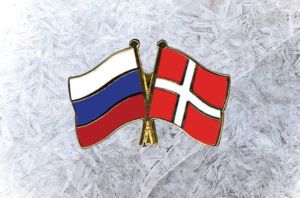News
Relations in deep freeze? Denmark thrice condemns Russian actions
This article is more than 4 years old.
Foreign minister Jeppe Kofod issued statements pertaining to Russian activity in the realms of human rights, Ukraine and Mali

Things are getting frosty (photo: Pixabay)
Denmark’s relationship with Russia seems to be about as frigid as a winter’s night in Murmansk at the moment.
From degradation of human rights and military build-up by Ukraine to sponsoring mercenaries in Mali, Russia has attracted Denmark’s attention for the wrong reasons recently.
Indeed, Russia kept foreign minister Jeppe Kofod busy on social media this week, most recently involving a condemnation following Russia’s Supreme Court’s decision to close one of the country’s most iconic human rights institutions, Memorial International.
“Forced liquidation of the highly respected human rights organization International #Memorial is another step in the deplorable degradation of human rights in #Russia,” wrote Kofod on Twitter this week.
“I call on Russia to protect human rights defenders, independent media, journalists and opposition figures.”
President Vladimir Putin, had earlier accused Memorial of supporting groups blacklisted by the Russian government for being terrorist and extremist organisations.
READ ALSO: Defence report defines key threats to Denmark
Ukraine and Mali
Hours earlier, Kofod had underlined that Russia faces massive consequences in the event that it deploys its troops into Ukraine again.
Russia has come under considerable scrutiny from the international community following its recent military build-up on the Ukrainian border.
“NATO is ready for dialogue with Russia, but we will not compromise the European security order and accept a Europe with countries in shackles,” wrote Kofod.
Finally, Kofod took another swipe at Russia on December 23 relating to Mali’s decision to hire foreign mercenaries from the notorious Russian company, the Wagner Group.
“Strongly condemn Wagner mercenaries deployment to #Mali. Deeply regrettable decision by Mali,” he wrote.
“Consequences will be coordinated closely w/ allies & partners. Danish troops will not operate with or train Malian troops cooperating w/ Wagner mercenaries.”
His response came in the wake of a joint statement from Denmark, France and a dozen other countries lamenting the decision by the Malian government.
However, defence minister Trine Bramsen stated yesterday that Danish soldiers would continue to be deployed to Mali.










































